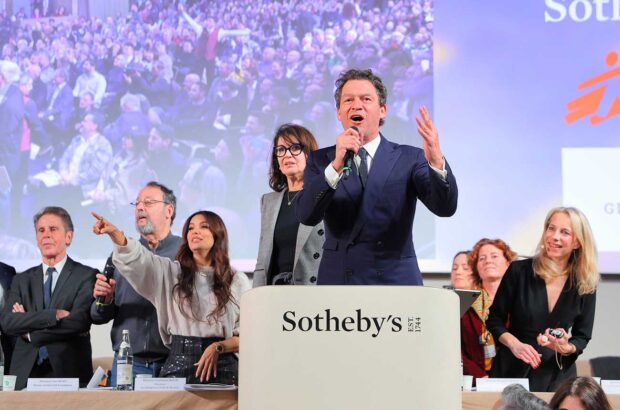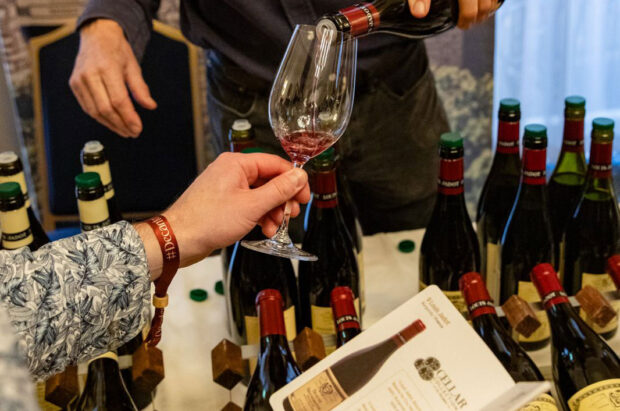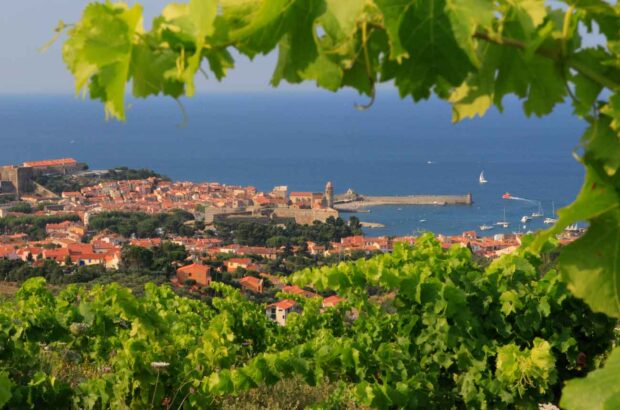Black winemaking starts in Virginia
Although historical and census records show that black people first came to Napa and Sonoma in the 1850s, there is no recording that they were involved in early American winemaking.
It isn’t until 1888, in Virginia, that the mention of black people making wine can be found. This was detailed in the book, Southern Sketches from Virginia, where author, Orra Langhorne describes visiting the home of Robert Scott, the grandson of a slave, and tasting a very good wine that he had made from his own grapes.
Dr Monique Bell, author of Terroir Noir: 2020 Study of Black Wine Entrepreneurs, tells me: ‘Wine has always been a part of black culture. Even before America, there were cultures in Africa making and consuming wine. There are anecdotal accounts of black people making wine in the southern US states from native grapes (most likely Muscadine) and fruit trees, but it was just not documented in history books.’
Bell explains that the next documented instance of black people making wine in the US also took place in Virginia at the Woburn Winery. John June Lewis, Sr. opened a small winery in 1940 and is thought to be the first African American to own and operate a commercial winery in the US. The winery was quite successful, producing up to 19,000 litres of wine from 4ha of hybrid and native Labrusca grapes before it closed in 1970. The wine was known as the Virginia-Carolina brand, and it produced a dry red wine and a dessert wine made from dried (raisin) grapes.
Black winemakers in California
It wasn’t until the 1990s that African American-owned wineries were established in California. The first, according to Bell, was Brown Estate in Napa Valley, launched by Deneen, David and Coral Brown. Their parents had purchased land in the Chiles Valley AVA in 1980.
They planted Zinfandel grapes, and in 1996 the siblings bottled their first wine. They were successful, receiving a 91-point score from Wine Spectator for their 1997 vintage. The winery continues to flourish to this day, and has a tasting room in Downtown Napa.
In 1997 two other Black-owned wineries were established. One was Vision Cellars in Sonoma County, founded by Mac McDonald, specialising in Pinot Noir. The other was Rideau Vineyard, just outside of the town of Solvang in the Santa Ynez Valley.
‘Rideau Vineyard was founded by Iris Rideau, making her the first black female winery owner in America’ states Bell. ‘Her story is remarkable, because she grew up in New Orleans as a Creole black woman, and later moved to Los Angeles. When she decided to retire, she moved to the Santa Ynez Valley to launch her winery. She was very supportive of women in the wine industry and hired female winemakers. She also wrote a memoir called From White to Black, which was part of the inspiration for the TV series, Kings of Napa.’
Rideau sold the winery in 2016 to current owners, Martin and Isabelle Gauthier, who continue to produce the Rhône-style wines she loved. The Gauthiers maintained the name of Rideau and honour the history of the first American Black woman to found a commercial winery.
In 1999, the Sterling family (four brothers and their father) bought the famous Cole Ranch AVA, the smallest appellation in America, producing cool-climate Riesling, Chardonnay and Pinot Noir in Mendocino County. Eventually, they decided to make wine themselves and established Esterlina Vineyards, which means ‘Sterling’ in Spanish. The wines they produced received such high accolades that they were served twice at the White House. Sadly the Sterlings lost the winery in a lawsuit in 2016.
An increase in Black winemakers across the US
The number of black-owned wineries and winemakers has increased tenfold since the 1990s. According to a 2022 tally by Alder Yarrow, author of wine blog Vinography there are now over 130 Black-owned wineries in the US. Though the majority are still in California, the list now includes other states, such as Oregon, Washington, Texas, Florida, South Carolina and Vermont.
However, out of more than 11,000 wineries in the US, only about 1% have a Black winemaker or are Black owned.
Phil Long, president of the Association of African American Vintners (AAAV) and founder of Longevity Wines in Livermore, California, said: ‘There has definitely been a trickle of growth. But building a pool of up-and-coming black wine professionals takes time. Most of AAAV’s impact has occurred in the last few years.’
‘We’re increasing informal mentoring and have launched an entrepreneur grant programme. We aim to help elevate AAAV members in the industry and grow the number of new black wine professionals overall,’ he added.
An industry reflecting its consumers
Long offered an analogy that speaks to the disconnection between wine consumers and those working in the wine industry.
‘Imagine a bowl of jelly beans representing all of the people across America who consume wine. It would hold a beautiful assortment of colours. Why does the bowl of jelly beans representing the people who grow, produce, sell and educate about wine look nothing like the consumer bowl? I think those bowls should look the same, both reflecting the entire spectrum.’
However, according to Bell, there is some good news. ‘Even since 2020 there has been more growth in the number of black American wine entrepreneurs,’ she states. ‘Some are established winemakers with vineyards and estates, whereas others make wine at custom crush facilities or as négociants. This is good for the industry, because with more black winemakers, more Black consumers will follow.’
Editor’s note: Special thanks to Bo Simons, retired Sonoma County wine librarian and Diana H. Stockton of the Napa Valley Wine Library Association for providing valuable resources for the research of this article.







